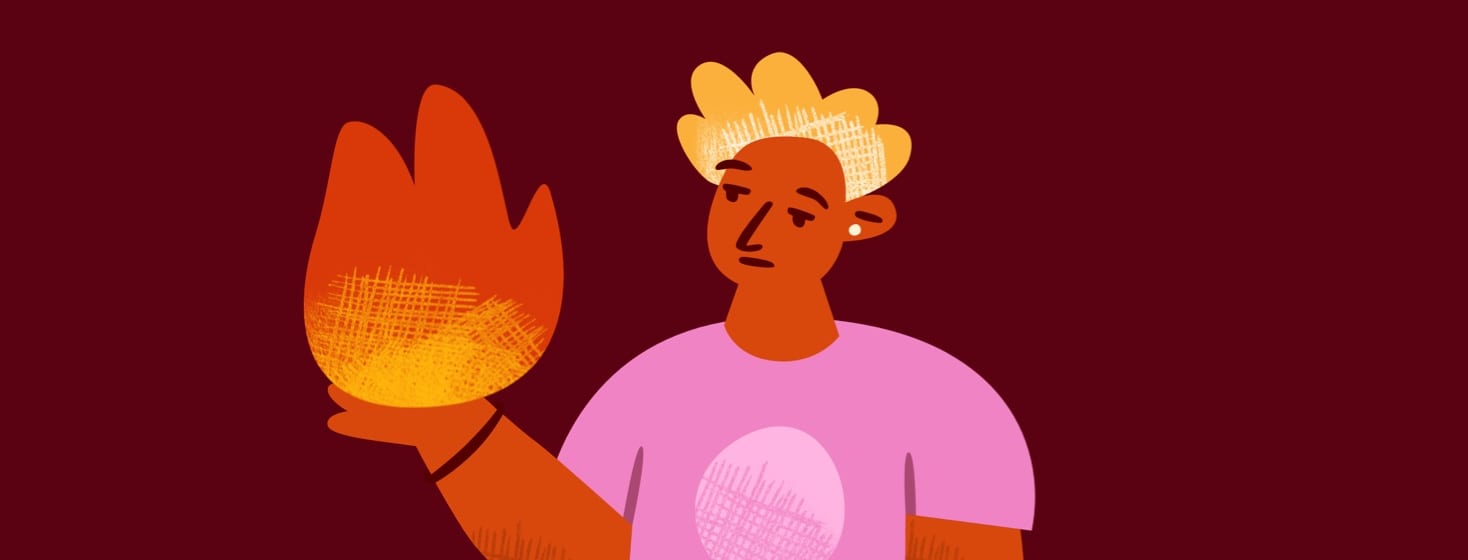The Great Flare Debate
When you explore Dr. Google for general information about rheumatoid arthritis, you will often see references to the term "flare." Many general information websites discuss flares as if patients with RA experience no symptoms, then have a "flare" in which they experience symptoms; then, when the flare passes, life with RA is supposedly okay again.
Looking at flares this way can be very confusing and misleading — not only for patients, but also for friends, family, and in some cases, medical professionals as well.
Flare or not-flare, that is the question
In my experience, life isn’t divided into "flare" and "not-flare." Rather, it seems to fluctuate between a long, unending flare and same flare, different level. Over the years I’ve been able to cobble together some symptom-specific signs that I associate with a flare, but even after all this time, quite a bit of ambiguity still remains.
On the intake form for my rheumatologist’s office, there is always the same set of questions, including, "Did you experience a flare since your last visit? Was it treated?" Umm, maybe? And I find it fascinating that, even so many years post-diagnosis, I’m not always sure about how to answer that question.
The great flare debate
Sure, in my experience, there does seem to be a sort of ebb and flow when it comes to the hallmark symptoms of my rheumatoid arthritis. There are sometimes a series of days that are worse and days that are (for lack of a more descriptive phrase) less worse. Perhaps with more pressing and painful concerns we should be less concerned with word choice.
However, a key element in RA disease management is communication, both with medical professionals as well as our support systems. If we are unclear about how we communicate our symptoms and experiences, it can lead to challenges in treatment, delays in care, and unrealistic treatment expectations.
Start a Forum
Is 'flare' a flawed term?
While I understand the context and reasoning behind the term "flare," I think sometimes the use of the term with the general public is a bit flawed. General RA/RD literature and websites talk about flares as if they are absolute, with clear start and end times. Not to mention the further inference that if you are not having a flare, then you are fine — a.k.a. symptom-free. Which, in my experience, has never happened.
How do I know if I’m experiencing a flare?
Many patients, especially those early in diagnosis, have asked how to know if they are experiencing a flare or not. As much as I wish there was a simple answer to the question, there just isn’t a one-size-fits-all scenario.
Sometimes I think it helps if you think of it like a dimmer switch. There are times when the switch is at full power, raining down light on everything it touches, while at other times, there is only a subtle background glow. It is always there, with power running through the switch. Sometimes it is on full blast for days, while other times it can come and go multiple times throughout the day.
Could there be a better way?
I can’t help but think there has to be a better way to describe or explain the ebb and flow of symptoms. And if I had a brain that was working at pre-diagnosis power, I’d probably be able to come up with something. But perhaps we can collectively pool our experiences to come up with a better, clearer way to communicate and understand this fluctuating phenomenon that remains a hallmark of autoimmune diseases.

Join the conversation